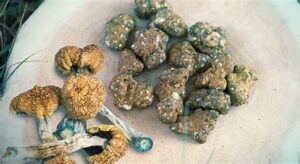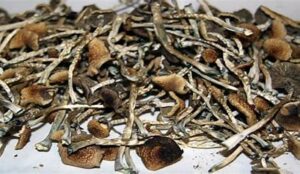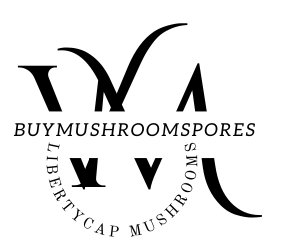what is the treatment of adhd , Recently, there’s been a surge of interest in psychedelic substances, both from a recreational and a scientific point of view. More people use psychedelics to increase their well-being or productivity. Also, research on the matter has also picked up.
Contents
hide
Organizations that focus on psychedelic research
Numerous organizations like the MIND Foundation, the OPEN Foundation, the multidisciplinary association for psychedelic studies (MAPS), and the Heffter Research Institute, among others, focus on conducting psychedelic research and promoting its therapeutic use. Research what is the treatment of adhd promising results for psychological disorders. This includes treatment-resistant depression and post-traumatic stress disorder (PTSD).
Indeed, studies show that psilocybin appears to be at least as effective as conventional antidepressants, and training in psilocybin-assisted psychotherapy is being offered by companies like COMPASS.
A novel therapeutic area of psychedelic research?
Besides mood disorders, another therapeutic area where we can apply psychedelics is the treatment of attention deficit and hyperactivity disorder (ADHD). ADHD is a prevalent chronic disorder that may greatly impact one’s quality of life. The symptoms typically include problems with cognition and executive functions, such as focusing and maintaining attention, finding motivation for doing work, and issues with learning and memory, but the disorder also features mood disturbances and impulsivity.
ADHD and current medication: the unmet medical need

The current first-line treatment for ADHD is stimulant medications, which are safe and effective in the short term when taken in the prescribed doses. These stimulants have poor efficacy in the long-term, however, as they can lead to unpleasant side effects and withdrawal-like symptoms. It is also estimated that in about 30% of ADHD patients, stimulants are either not effective enough, or the adverse effects cannot be tolerated. Thus, there is a medical need for better medications for this disorder, and psychedelic microdoses might prove to be beneficial.
Microdosing for ADHD (what is the treatment of adhd )
Research on this disorder is still scant, but it is slowly picking up, and preliminary anecdotal evidence shows promising results. A microdosing approach to administering psychedelics might be more suitable for this purpose, as this does not involve any type of subjective experience. It nevertheless offers cognitive and emotional benefits, which make it more appropriate for everyday tasks. This is similar to how one would take chronic stimulant medication for ADHD. In fact, Albert Hoffmann himself, the Swiss chemist who synthesized LSD, was pro using small doses of the psychedelic as an alternative to Ritalin. James Fadiman, a pioneer of microdosing research, has also been reported to suggest the use of microdoses as an “extremely healthy” alternative to Adderall.
This article focuses on this topic, and it will be addressed what microdosing is and why it might be a potentially safer and more effective route for ADHD treatment. To strengthen this point, the effects of psychedelics on the brain will be briefly discussed, as well as some preliminary research in this field.
Microdosing as a potentially safer route to treat ADHD

Psychedelics are one of the safest classes of drugs known, as they have negligible effects on the body, cannot cause death due to purely physical complications or an overdose, nor do they result in any long-lasting physiological changes. Psychedelics also have a very low potential for addiction, as they are not physically rewarding. The intensity of the ‘trip’ experience nevertheless carries inherent risks. Higher doses might increase the occurrence of adverse psychological effects. This can be the experience of a ‘bad trip’ accompanied by confusing thoughts and unpleasant emotions.
Although the incidence of unwanted psychological events is greatly reduced when there is a proper set and setting in place, a potentially safer route of using psychedelics is microdosing. Microdosing does not intoxicate the user and allows for going about everyday tasks as one normally would.
What is microdosing? and is it a treatment for adhd uk ?
Microdosing entails the use of doses that are below the threshold for a ‘trip’, and so do not involve a ‘trip’ experience with the accompanying hallucinations, ego-dissolution, and intense emotions. In fact, one should not feel any subjective effects at all (i.e. feel more or less sober) for the dose to be considered a proper microdose and not just a very small dose (see Table 1).
Microdosing still involves the same mechanisms of action, uses the same neurotransmitters, and acts on the same brain areas as larger doses do. Thus, microdosing does lead to cognitive and emotional changes, even though those are subtle and may not be so explicitly felt. Following this logic, and after sufficient research on the matter, microdosing might be a suitable way to administer psychedelic substances as one would the currently available medications for ADHD.
Psychedelic Substance Microdoses*

Psilocybin-containing mushrooms (dried; taken orally) 0.1- 0.5 g
Psilocybin Magic Truffles (fresh; taken orally) 0.50 – 1.5 grams
LSD (taken orally) 6-20 µg
DMT (smoked) 8-9 mg
Table 1. Dose ranges for some classical psychedelics that are considered to be below the threshold of a trip, and thus a microdose. *These dose ranges are based on an average body weight of 70kg.
How do psychedelics affect the brain?
Changes in neurotransmitter levels
treatment for adhd uk, including LSD, DMT, and psilocybin, exert their effects mainly through the release of serotonin, but they also affect the levels of other neurotransmitters, like dopamine and glutamate.
Serotonin
Activating serotonin receptors in the frontal regions of the brain can enhance certain brain functions that are involved in executive functioning, attention, and memory. As ADHD features dysfunctions in some of these frontal cerebral regions, psychedelics might be especially beneficial for this attention disorder.
Dopamine
On top of that, increasing dopamine might be involved in the enhancement of learning and memory mechanisms and increasing motivation for goal-directed behavior. Difficulties with learning, motivation, and executing goals are crucial impairments in ADHD that may seriously impair quality of life. Increasing dopamine levels can act to diminish some of these symptoms.
In addition, brain imaging studies14 show that repeated exposure to psychedelics leads to a longer-lasting increase in dopamine receptors. Since ADHD patients have a deficit in their dopaminergic system, psychedelics seem like a good fit to improve dopamine levels.
Glutamate
Glutamate is the major excitatory neurotransmitter in the brain, so an increase in its activity might contribute to the greater connectivity between different brain areas, as well as to greater neuroplasticity and improved learning and memory. This might also constitute a potential match with ADHD since the disorder includes impairments in the connections and, thus, communications between some brain areas.
Changes in brain function
The use of psychedelics can also lead to functional changes in some areas of the brain, mainly frontal regions and parts of the limbic system. As those brain areas are generally involved in emotion regulation, memory, learning, and executive functions, altering their function is crucial for ADHD.
Amygdala
Psilocybin has been shown to reduce the activity of the amygdala – a part of the limbic system, mainly involved in the experience of fear and negative emotions. Reducing activity in this region might be beneficial for mood disorders like depression but can also benefit those that have disorders like ADHD since ADHD also features hyperactivity in the amygdala.
Cortico-striatal-thalamo-cortical (CSTC) circuit
treatment for adhd uk also act on the so-called cortico-striatal-thalamo-cortical (CSTC) circuit, which is a feedback loop of interconnected brain regions in both frontal and deeper parts of the brain, which regulate executive functions like learning and memory. This circuit is also impaired in ADHD, leading to some of the executive dysfunctions seen in the disorder. By altering its activity, psychedelics might contribute to normalizing the functioning of this feedback loop and, thus, relieve some of the symptoms of ADHD.
Changes in brain structure
With long-term and repeated use of psychedelics, the structure of certain brain areas might change with time. This might point to a potentially longer-lasting therapeutic effect than current stimulant medication. However, we may need to explicitly test this in future studies.
Levels of BDNF
Some research has found that psychedelic use increases the levels of brain-derived neurotrophic factor (BDNF). This trophic factor plays a role in the growth and development of neurons and promotes the expression of certain genes associated with neural plasticity. Brain plasticity, also known as neuroplasticity, is a term that refers to the brain’s ability to change and adapt as a result of experience. This might be particularly useful for learning and thus also be beneficial for ADHD patients.
Brain Plasticity
The same study demonstrated that psychedelics are able to promote structural brain plasticity by increasing the number of places in neurons where they can communicate with other neurons (called dendritic spines). This effect is also achieved when administering amphetamines like Adderall. Psychedelics, however, were also able to increase the density of these dendritic spines, while amphetamine could not. This might point to a potentially similar working mechanism in both psychedelics and stimulants and suggest that psychedelics might be at least as effective as stimulant medication for ADHD treatment.
Scientific research: the effects of microdosing on ADHD
Rigorous scientific research that includes controlled experimental trials for the effects of microdosing on ADHD patients is lacking. Some anecdotal evidence, however, points to the usefulness of psychedelics in treating attention deficit disorder. Many of these effects are from microdosers in observational studies. There is no confirmation by placebo experimental trials. Therefore, we cannot take these results as a fact. Nevertheless, these studies do point to a possible beneficial effect of psychedelics on ADHD patients.
Studies in Healthy Volunteers
We already know that microdosing psychedelics can be helpful with productivity, attention, creativity, and learning. We can see this from reports by silicon-valley professionals who use it to boost their performance at work.
Research into microdosing in healthy volunteers also finds that psychedelics can improve cognition, attention, and focus. Reports from participants show a decrease in mind wandering and distractibility and improvements in processing and expressing their emotions.
Are psychedelics superior to stimulant meds?
A research study done by the Marine Corps for the search for new performance-enhancing drugs concluded that psychedelic microdoses might be superior to ADHD medications for cognition enhancement and do not produce as many negative effects. These results are yet to be confirmed in other studies, however.
Studies in ADHD patients
Unfortunately, as also mentioned above, only anecdotal research with ADHD patients is currently available. Nevertheless, many people diagnosed with ADHD share their positive experiences with microdosing online, and this data also reveals the potential use of psychedelics in treating this disorder.
Fewer side effects
Observational studies of microdosing volunteers illustrate that there is a specific interest in microdosing from ADHD patients. These studies reveal that a large percentage of microdosers have the disorder. Most of them want to reduce the side effects they experience from their stimulant medication. For this, they combine or replace it with psychedelic microdoses. In another study, the researchers found a sub-group of participants who microdose to relieve their ADHD symptoms. Those participants had improvements after microdosing, with fewer side effects compared to stimulants.
No crash after the dose wears out.
A recently published paper found that those with ADHD rated psychedelic microdoses as more efficacious than conventional stimulant medications. The authors of the paper argued that this might be due to the lack of unwanted effects of microdosing. These do not produce a crash after their effect has worn off and do not require daily dosing like stimulants do, which might act to further decrease any instances of side effects.
What does this all mean?
In conclusion, microdoses appear to be much safer than psychedelic macrodoses. They do not involve an intense, mystical experience and are more suitable for daily use as a supplement. Microdoses also enhance cognition and functioning while going about one’s day. Compared to current stimulant medications, psychedelic microdoses appear to be safer and associated with fewer adverse effects. They are also as effective in reducing ADHD symptoms.
Although this article focuses on microdosing, the trip experience of a psychedelic macrodose might be therapeutic in itself. Macrodoses can act to ‘re-wire’ the brain in a relatively short time. For instance, those might be very beneficial as part of a psychotherapeutic program to dive deeper into one’s own consciousness. It also helps provide a better understanding of one’s own mind.
Untapped Capacity for Healing (treatment for adhd uk )
It is clear that these drugs have great potential for therapeutic use and specifically for ADHD. Therefore, they should definitely be a core part of further research. These powerful substances have a capacity for healing that we are yet to tap. In my opinion, we should explore this power to enhance the quality of life of ADHD or other patients.
Nevertheless, we cannot make a conclusion about the clinical usefulness of psychedelics at this time. This is because research is still in its infancy, and rigorous experimental studies on patient populations are lacking. All of the results need supporting factors and clinical trials. This is to easily establish a more reliable relationship between psychedelics and ADHD.
Limitations of microdosing studies and suggestions for further research
It is also important to mention that many of the studies already conducted on microdosing have methodological limitations. This makes it difficult to interpret the results. For example, most of the evidence relies on self-reports and questionnaires. With that, we cannot measure the truthfulness and accuracy of these reports.
In addition, most of these studies recruit volunteers only for a certain group of people. It was mainly those who microdose psychedelics. This population might not be representative of the general population. Therefore, these results might not hold true when applied to all people. Due to a lack of a standardized protocol for microdosing, different studies use different regimes of dosing. Some dose every day, others once a week. The frequency of microdoses might greatly impact the effects they have since these are so subtle. Also, the great variety makes a comparison of different studies flawed.
Furthermore, there is no ‘one’ dose of the ultimate microdose. It’s a range of doses below a certain threshold, and the optimal dosage and dosing regime vary with each individual. This further complicates the interpretation of results and comparisons between studies. Further developments in the field should focus on addressing some of these limitations. That way, it becomes easy to maximize the benefits and minimize the potential unwanted effects of microdosing.
